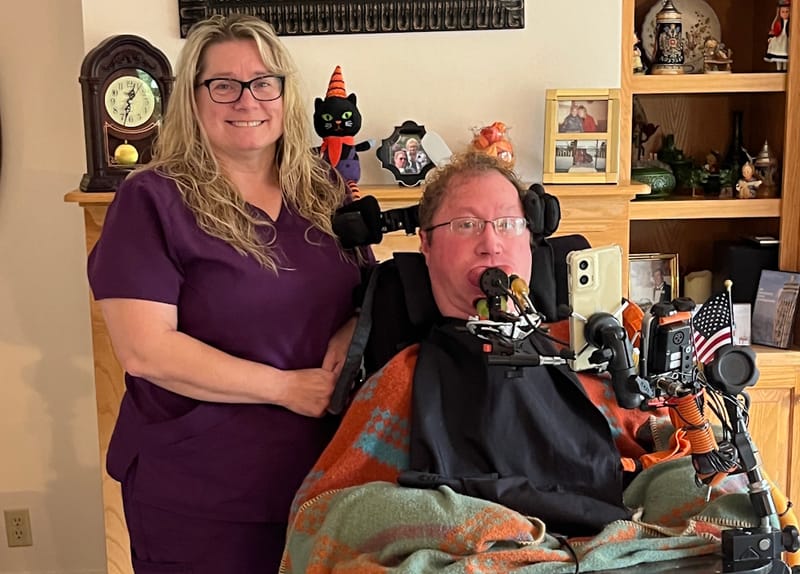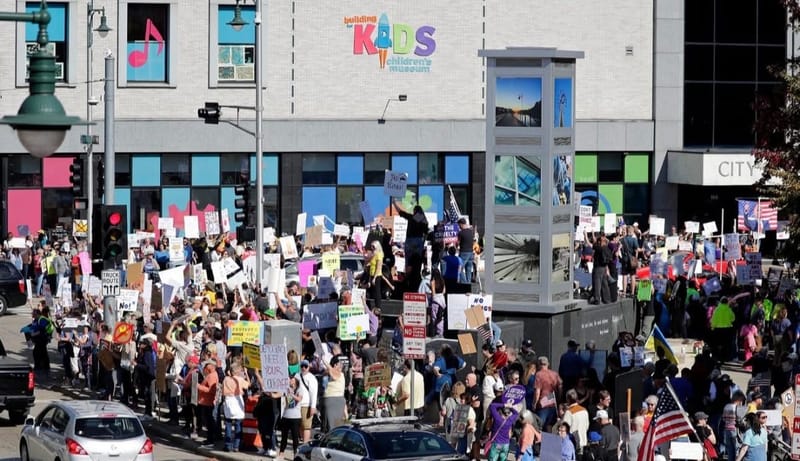New London community shows up for immigrant neighbors on the cusp of being deported
'These are our community members. And they just got the rug pulled out from under them. I mean, it’s fundamentally wrong.'
Decrying what they say makes no economic sense and is, more significantly, a moral outrage, nearly three-dozen people bearing signs descended on an intersection outside of the New London Tyson Foods plant early Wednesday morning to protest the Trump administration’s order for nearly 100 immigrants in the community to self-deport by the end of the month.
Those Tyson Food plant workers and New London residents – mostly Haitians – were here under a humanitarian parole program launched by the Biden administration for families fleeing violence or political turmoil. Their temporary protected status was yanked away suddenly last week by the Trump administration. Tyson Foods followed that action by letting those workers go.
Among those on hand were immigration lawyers Eloisa De Leon and Marc Christopher, who have been working on behalf of the families who over the past two years had begun to establish roots in the New London area.
The two admit that there are limited options available to save these families from being forced to return to Haiti. A request for asylum is the final hope but that, they say, is a long shot, given that the asylum process takes, at minimum, three years to make it through the system.
“Marc and I have decided to move beyond the courtroom to support our clients,” De Leon said at the rally. “We’re forced to take a partisan stand but this should not be a partisan issue. It should be a human issue. What is happening now is not only cruel, it goes against the standards and morals of this county and we have to do more.”
The 100 Tyson Food plant workers represent nearly 10 percent of the plant’s entire New London workforce.
President Trump campaigned on mass deportation, though few could have foreseen such swift action, let alone actions that have denied some people due process. Furthermore, deportations of those with protected status have almost always been limited to those who have committed crimes, but the Trump administration has made no such distinction.
Immigration lawyer Eloisa De Leon speaks at a protest rally for immigrants in New London on Wednesday morning. One hundred Haitian Tyson workers were let go after the Trump administration suddenly ordered their deportation recently.
In the case of the New London immigrants, the administration did not cite even minor violations that technically can be (though rarely are) used to revoke protected status. Indeed, all had passed background checks and, under Biden’s CHNV program, all had financial sponsors.
Various media outlets, including USA Today, were on hand to cover the protest.
For Christopher, it’s not just a legal matter and it’s not just an economic issue. It’s personal.
“These are our community members,” said Christopher, who is married to De Leon. “And they just got the rug pulled out from under them. I mean, it’s fundamentally wrong. These people live in terrible conditions (in Haiti). They’re subject to lawlessness by gangs in their hometowns.”
Furthermore, Christopher said, his own kids have relationships with some of the folks who are being asked to leave. His son was on the wrestling team with one.
“I was telling people, these are people that we see in our schools, that we see in our churches,” he said. “I mean, you can’t have it both ways. You can’t say you are for legal immigration but then when people come here legally and do it the right way, you say, no, go back anyway.”
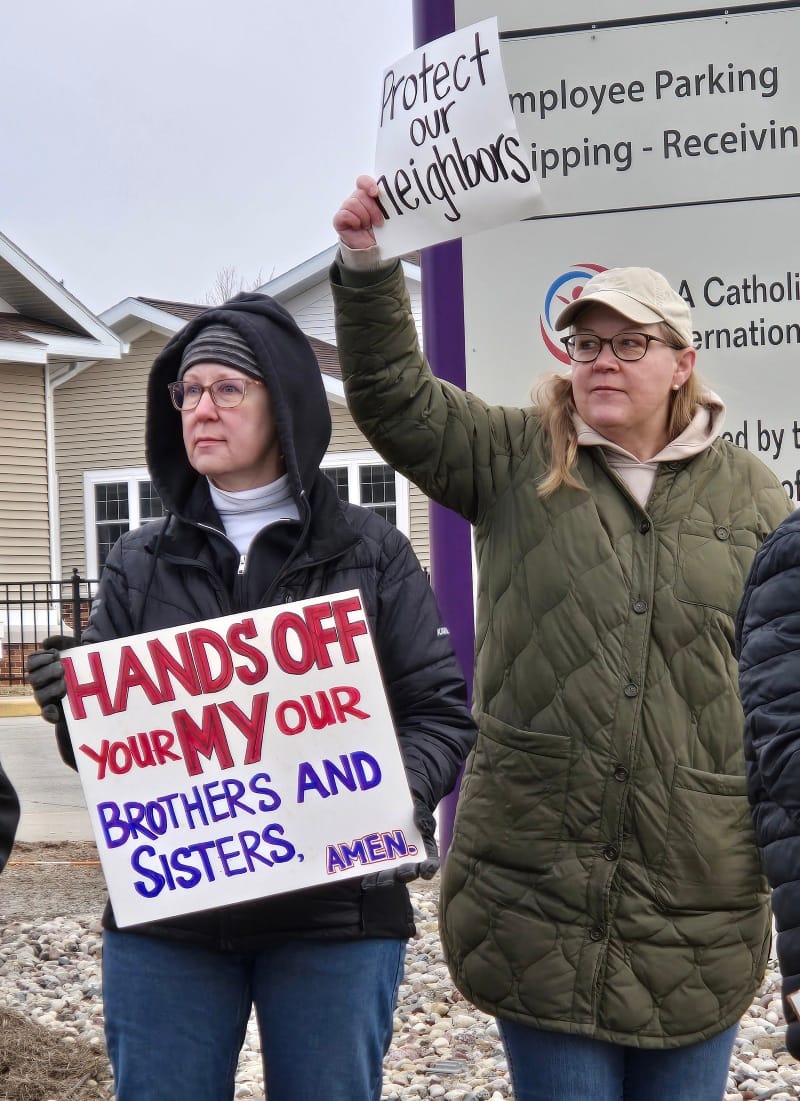
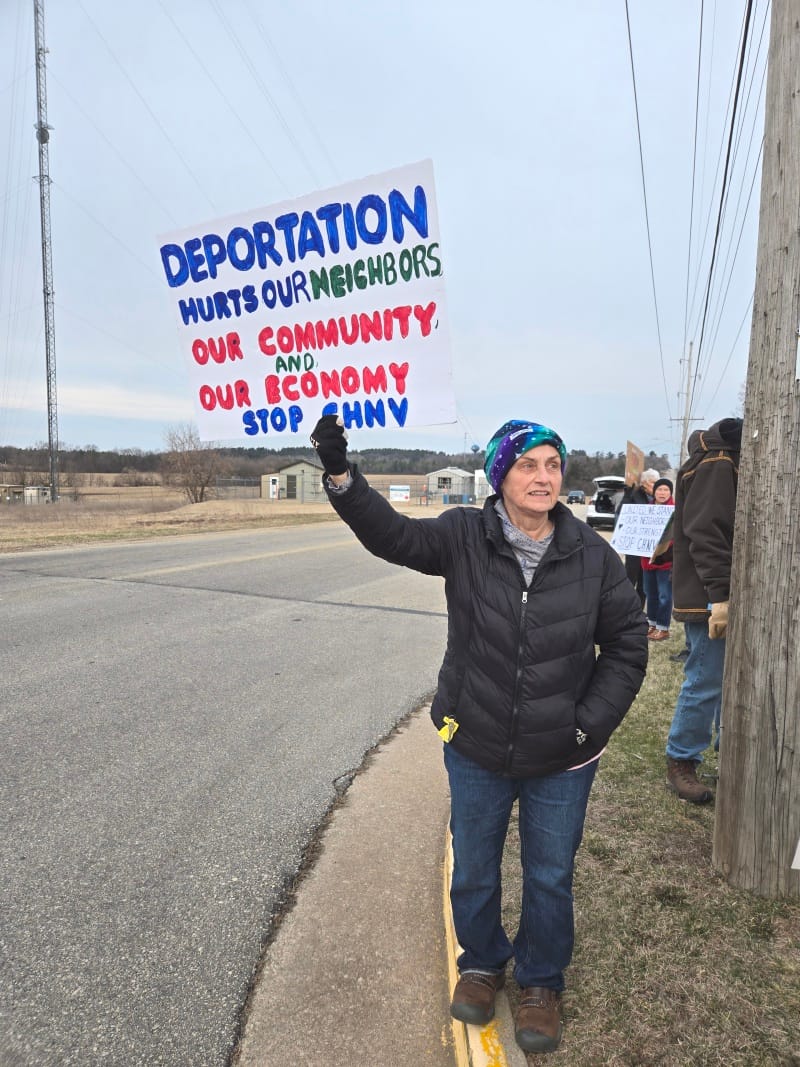
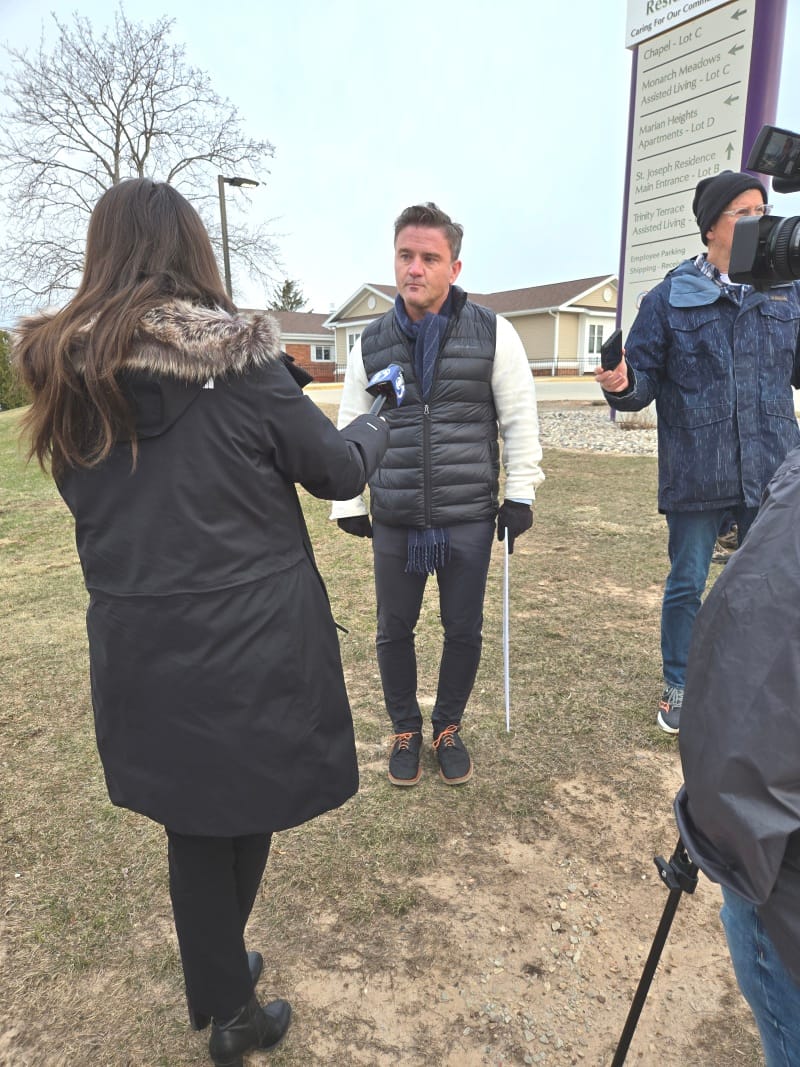
For right, immigration attorney Marc Christopher speaks to a USA Today reporter.
Also on hand was Rev. Debi VanDenBoom of the New London United Methodist Church. VanDenBoom has been in New London since last July and said she felt the need to be present Wednesday to be a witness for the church and because of her own convictions. She struggled to find the words for the actions the administration has taken.
“It’s indescribable,” she said. “That we would send people who came here legally and who are integrated into our community away so abruptly and to situations where we don’t know if they’re going to be safe.”
She said she wasn’t sure just how aware her fellow New Londoners are of what is happening or its impact.
“I think people still have to learn what it means to be mutually connected, right?” she said. “We don’t see one another as children of God anymore and that we all have sacred hearts. That’s very disappointing to me.”
Kevin Finley came all the way from Scandinavia, Wisc., to protest. Finley, who is retired from the wholesale nursery business, noted just how vital a role immigrants play in our economy. He says most Americans take for granted that when they walk into a grocery store that they’ll be able to find chicken or beef or dairy products but don’t understand that so much of that is the result of immigrant workers.
“I just get emotional thinking about all these people that come all the way from Haiti to do this heavy lifting,” he said. “And we’re going to kick them out? I saw first-hand families come to America. They worked in agriculture. They started their own construction companies. Their kids went to college. That’s the opportunity America has offered for a couple of hundred years.”
Christopher said he thinks it’s intentional that Trump announced the action so suddenly, to shake people up and keep people off balance and even keep many in the community in the dark.
“Only give them thirty days to move,” he said. “So it just happens so quickly and that’s why we’re here today, to make people in the community aware that this is happening.”
For Rev. VanDenBoom, the situation creates an opportunity for her church to become active in ways that fall outside of traditional avenues.
“It’s pretty indicative by the numbers that people are disconnected from the church,” she said. “So I think this represents a chance for rebirth and reconnection. What does the church look like when it’s active on its feet? Kind of like the Jesus movement, right?
“Some of this is out of our control right now,” she added. “But I can make an impact, make changes in my behaviors and choices and thoughts. I can’t just go fix the problem. And so I have to believe that God is with us in what is happening and stands aligned with those who suffer.”





